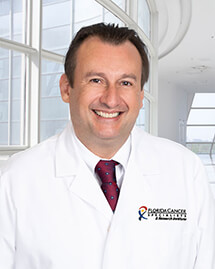Author(s): Shanu Modi, M.D., Cristina Saura, M.D., Ph.D., Toshinari Yamashita, M.D., Yeon Hee Park, M.D., Sung-Bae Kim, M.D., Ph.D., Kenji Tamura, M.D., Ph.D., Fabrice Andre, M.D., Ph.D., Hiroji Iwata, M.D., Ph.D., Yoshinori Ito, M.D., Junji Tsurutani, M.D., Ph.D., Joohyuk Sohn, M.D., Ph.D., Neelima Denduluri, M.D., et al., for the DESTINY-Breast01 Investigators*
Author Affiliations
From Memorial Sloan Kettering Cancer Center, New York (S.M.); Vall d’Hebron University Hospital, Vall d’Hebron Institute of Oncology, Barcelona (C.S., J.C.), and IOB Institute of Oncology, Quiron Group, Barcelona and Madrid (J.C.); Kanagawa Cancer Center, Yokohama (T.Y.), National Cancer Center Hospital (K.T.), the Cancer Institute Hospital of the Japanese Foundation for Cancer Research (Y.I.), and the Advanced Cancer Translational Research Institute, Showa University (J.T.), Tokyo, Aichi Cancer Center Hospital, Nagoya (H.I.), Kindai University Faculty of Medicine, Osaka (J.T.), Shikoku Cancer Center, Matsuyama (K.A.), and the National Hospital Organization Kyushu Cancer Center, Fukuoka (E.T.) — all in Japan; Samsung Medical Center (Y.H.P.), Asan Medical Center, University of Ulsan College of Medicine (S.-B.K.), Yonsei Cancer Center, Yonsei University Health System (J. Sohn), and Seoul National University Hospital, Cancer Research Institute, Seoul National University College of Medicine (S.-A.I.), Seoul, and the National Cancer Center, Gyeonggi (K.S.L.) — all in South Korea; Institut Gustave Roussy, Université Paris-Sud, Villejuif (F.A.), and Centre Eugène Marquis, Rennes (C.P.) — both in France; the US Oncology Network, Virginia Cancer Specialists, Arlington (N.D.); the University of California, Los Angeles–Jonsson Comprehensive Cancer Center, Los Angeles (S.A.H.); Daiichi Sankyo, Basking Ridge, NJ (C.L., S.C., L.Z., J. Shahidi, A.Y.); and the Dana–Farber Cancer Institute, Boston (I.K.).
